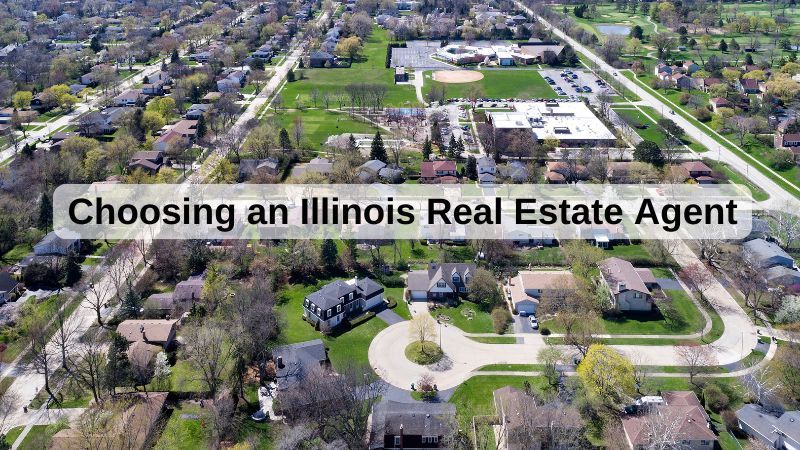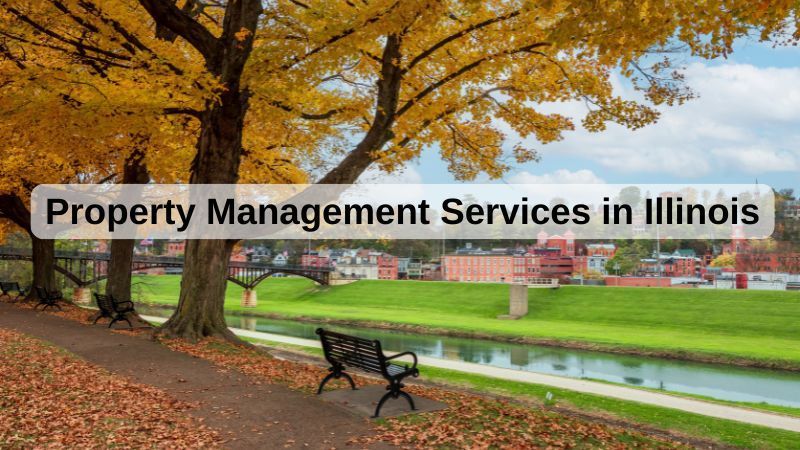Analyzing the Pros and Cons of Living in Elmhurst, IL

Discovering Life in Elmhurst, IL
Elmhurst, IL is a charming city located just west of Chicago. Known for its vibrant community, excellent schools, and beautiful parks, Elmhurst offers a unique blend of suburban calm with convenient access to urban amenities. With a population of around 46,000, the city maintains a tight-knit feel while providing residents with numerous opportunities for work and play. The city has a rich history, with roots tracing back to the early 19th century. Its historical background is evident in the well-preserved architecture and numerous cultural landmarks scattered throughout the area. This blend of history and modernity makes Elmhurst a desirable destination for many families, professionals, and retirees. Elmhurst is strategically positioned near major highways and public transportation options, making it an ideal home for commuters and those seeking to enjoy both suburban tranquility and nearby city excitement. With a mix of residential, commercial, and green spaces, Elmhurst offers something for everyone.
Safety and Low Crime Rates
Elmhurst is often noted for its low crime rates, making it an attractive place for families and individuals looking for peace of mind. The city has a robust community policing strategy that focuses on building strong relationships between law enforcement and residents. Statistics show that Elmhurst has significantly lower crime rates compared to both state and national averages. The proactive measures taken by the Elmhurst Police Department, including neighborhood watch programs and regular community meetings, contribute to the overall sense of security.
Community and Neighborhood Atmosphere
Elmhurst is known for its welcoming and community-oriented atmosphere. Residents often participate in local events such as the Elmhurst St. Patrick's Day Parade, the Elmhurst Farmers Market, and the annual Art in Wilder Park festival. These events foster a sense of community spirit and offer residents opportunities to connect with their neighbors. Neighborhoods in Elmhurst are varied, each with its unique charm. From traditional single-family homes to modern apartments, there's a living arrangement to suit everyone's needs. The tree-lined streets, well-maintained parks, and friendly atmosphere contribute to a high quality of life.
Recreational Facilities and Green Spaces
For outdoor enthusiasts, Elmhurst boasts several parks and recreational facilities. Wilder Park, for example, is a local favorite with its beautiful gardens, playgrounds, and picnic areas. Eldridge Park offers amenities such as fishing ponds, athletic fields, and walking trails. The city also has multiple community centers that host various activities, from sports leagues to arts and crafts classes. The Abbey, a community center focusing on seniors, offers tailored programs and services, ensuring there's something for residents of all ages.
Historical and Cultural Attractions
Elmhurst has a rich cultural scene. The Elmhurst Art Museum, located in the historic Mies van der Rohe House, offers contemporary art exhibitions and art education programs. The Lizzadro Museum of Lapidary Art showcases an impressive collection of stone carvings and artifacts. Local theaters such as the Elmhurst Theatre Company provide entertainment options, further enriching the city’s cultural landscape. Historical sites like The Elmhurst History Museum offer glimpses into the city’s storied past.
Employment Opportunities
Elmhurst offers a diverse job market with opportunities in various sectors, including healthcare, education, and retail. Major employers include Elmhurst Hospital, Elmhurst University, and local government offices. Proximity to Chicago also expands employment opportunities, with residents enjoying the advantage of a short commute to one of the nation's largest job markets. Elmhurst’s thriving local economy and the presence of numerous small businesses further enhance employment prospects.
Vibrant Local Economy
Elmhurst’s economy is buoyed by a mix of established local businesses and new startups. The downtown area is bustling with shops, cafes, and restaurants, offering residents plenty of options for dining and shopping. Seasonal farmers markets bring fresh produce and artisanal goods, supporting local farming and contributing to the city’s charm.
Cost of Living
One of the primary challenges of living in Elmhurst is the cost of living. While the city offers numerous amenities and a high quality of life, these come at a price. Compared to the national average, Elmhurst’s cost of living is higher, particularly in areas such as housing, transportation, and healthcare. Elmhurst's higher cost of living may be a consideration for those on a tight budget or looking for more affordable living options.
Limited Nightlife
While Elmhurst boasts many amenities, it has a relatively limited nightlife compared to larger cities like Chicago. Nightlife options in Elmhurst primarily consist of a few bars, restaurants, and entertainment venues, which might not satisfy those seeking a bustling nightlife scene. Many residents who desire more vibrant nightlife often travel to nearby cities to enjoy a wider range of options. This can be inconvenient and may limit the spontaneous social activities one might expect in an urban setting.
Weather Considerations
Elmhurst experiences a full range of seasons, each with its unique characteristics. Winters can be harsh, with temperatures often dropping below freezing and significant snowfall. While many residents appreciate the beauty of winter, it can be challenging for those not accustomed to cold weather. In contrast, summers are warm and can be quite humid. These weather variations can pose challenges for those who prefer more moderate climates.
Limited Diversity in Dining Options
Although Elmhurst has a number of quality restaurants, the variety of dining options is somewhat limited compared to larger cities. The city's restaurant scene mainly features American, Italian, and a handful of other cuisines. For food enthusiasts seeking a wide array of international dining experiences, nearby Chicago offers a more diverse selection. This limitation might be a downside for those who enjoy exploring various culinary cultures right in their neighborhood.
Networking and Professional Growth Opportunities
Elmhurst is an ideal place for young professionals, thanks to its proximity to Chicago and its own thriving local economy. The city provides numerous networking and professional growth opportunities, which are essential for career development.
Elmhurst College offers career services, job fairs, and networking events that are beneficial for recent graduates and those looking to advance in their careers. Additionally, local organizations such as the Elmhurst Chamber of Commerce host events aimed at fostering business relationships and professional growth.
Social Life and Entertainment Options
Elmhurst has a lively social scene, with activities and venues that cater to young professionals. The downtown area boasts a variety of restaurants, cafes, and bars, providing spots for both socializing and casual business meetings. While Elmhurst may not have the bustling nightlife of a larger city, nearby Chicago offers an exciting array of entertainment options. From live music and theater to trendy bars and clubs, there’s always something happening just a short commute away.
Healthcare Facilities
Healthcare is a crucial consideration for seniors and retirees, and Elmhurst excels in this regard. Elmhurst Hospital, part of the Edward-Elmhurst Health system, is highly regarded for its comprehensive medical services. The hospital provides a wide range of healthcare specialties, from cardiology and oncology to orthopedics and geriatrics. With state-of-the-art facilities and a dedicated staff, residents have access to top-notch medical care.
Is Elmhurst, IL the Right Place for You?
Living in Elmhurst, IL offers a unique blend of advantages and challenges. Whether you are considering a move with your family, as a young professional, or planning your retirement, the city has much to offer.
Summary of the Pros
- Quality Education: Top-rated schools and higher education institutions.
- Safety and Low Crime Rates: A secure environment with proactive community policing.
- Accessibility and Commuting Options: Convenient access to major highways and public transportation.
- Community Atmosphere: A friendly, close-knit community with numerous local events.
- Recreational Facilities: Beautiful parks, trails, and community centers.
- Historical and Cultural Attractions: Museums, theaters, and cultural events.
- Employment Opportunities: A diverse job market both locally and in nearby Chicago.
- Vibrant Local Economy: Bustling downtown with various shops and dining options.
Summary of the Cons
- Cost of Living: Higher than the national average, particularly in housing.
- Real Estate Prices: Competitive and relatively high home prices.
- Limited Nightlife: Fewer entertainment options compared to larger cities.
- Weather Considerations: Harsh winters and humid summers.
- Traffic and Congestion: Commute times can be affected by local traffic.
- Limited Diversity in Dining: Fewer international cuisine options.
Final Considerations
When deciding if Elmhurst, IL is the right place for you, consider your lifestyle preferences and priorities. Families might appreciate the strong school system and safe environment. Young professionals could find ample job opportunities and professional growth prospects. Seniors and retirees will benefit from excellent healthcare facilities and a variety of senior-friendly activities and services. Thank you for considering Elmhurst, IL as your next potential home. Should you need assistance with your move,
Fly Guy Moving is here to make your transition smooth and effortless. Contact us today for a seamless moving experience!
Related Blog Posts



We offer complete moving services for any Illinois resident. Whether you’re looking for local movers or specialty movers, we are your best bet!
Links
We offer complete moving services for any Illinois resident. Whether you’re looking for local movers or specialty movers, we are your best bet!
Links
© Copyright 2025 | All Rights Reserved |
Fly Guy Moving | IL.C.C. 225813
